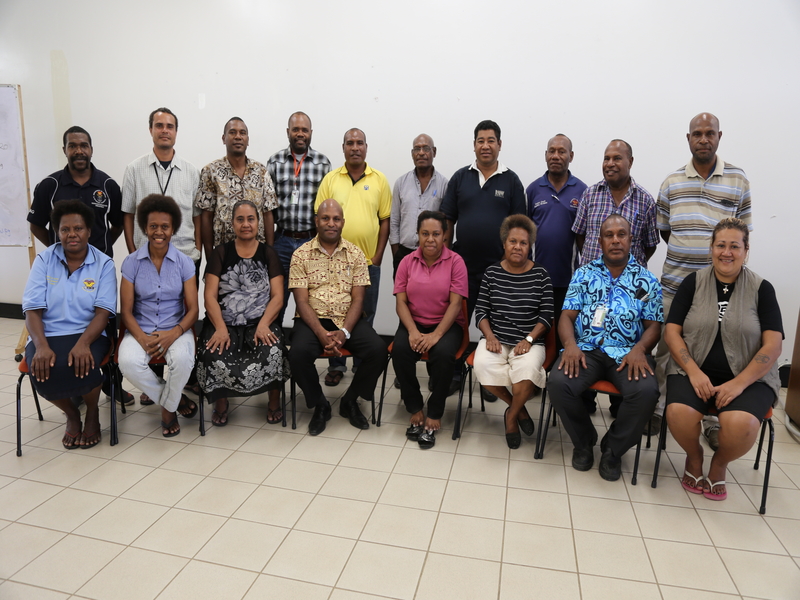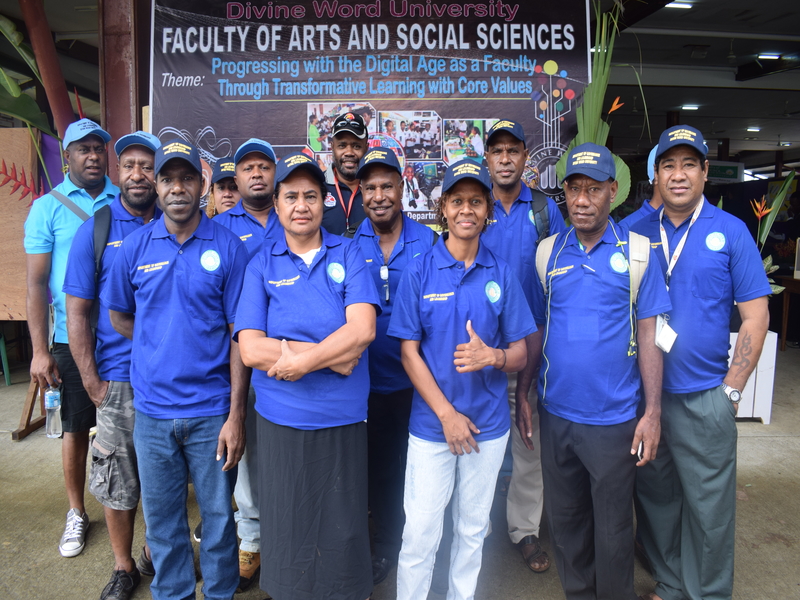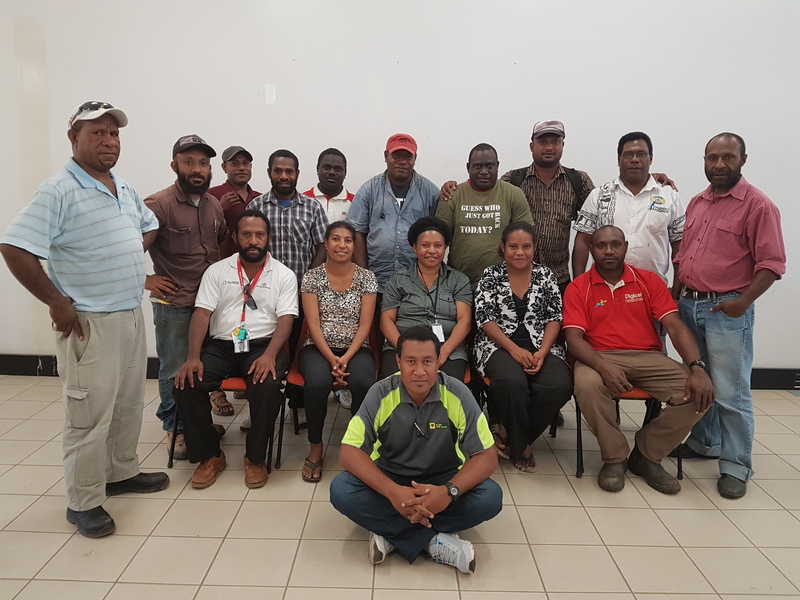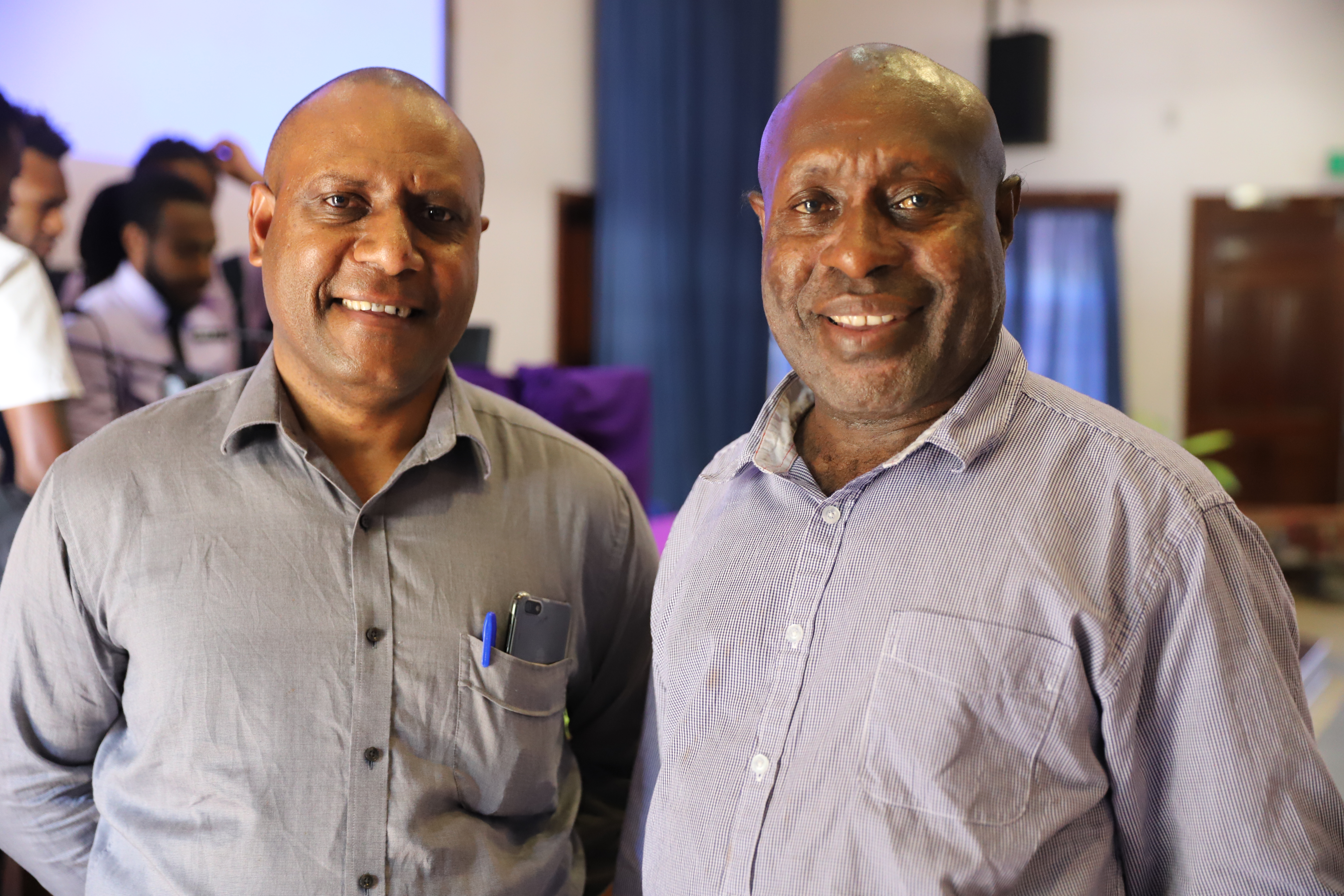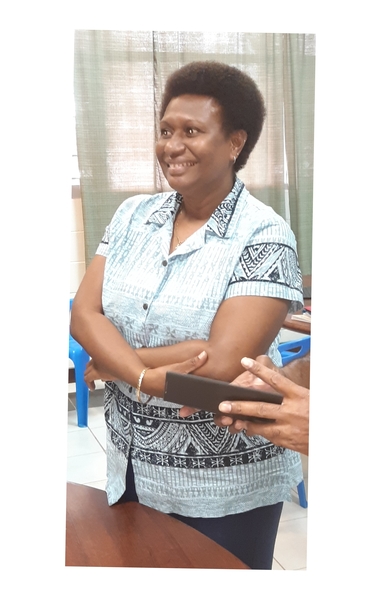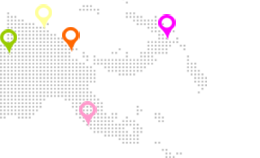Department of Governance and Leadership
WELCOME
The Department of Governance and Leadership (DGL) was established as a department under the Faculty of Arts and Social Sciences (FASS) in 2013. The programs were initially under the Faculty of Flexible Learning which was abolished in December 2012. All programs offered under DGL are through flexible learning (FL) mode and are specifically targeted at the workforce of PNG. Most students enrolled in these programs are adult working students who are required to attend a two-week residential session every semester for the two years duration of their studies.
The department is committed to the Arts Faculty vision by ensuring it is in the business of producing quality working adult graduates for the workforce in Papua New Guinea in the twenty-first century. The programs are designed to equip and develop knowledge and competencies of public servants in the broad areas of public sector governance, leadership and management in order for them to deal with issues in contemporary PNG workplaces. The fast evolving workplaces in PNG are increasingly exposed to new challenges from the context of globalization and international benchmarking and best practices, which gives the department the greatest challenge to come up with best formal training and education for adult working students which are also based on ethical and Christian values.
ABOUT DEPARTMENT
VISION & MISSION
VISION
The Faculty of Arts and Social Sciences is a Multidisciplinary Faculty in the Quest for Excellence, Committed to producing Quality Graduates for the Twenty First Century.
MISSION
The mission of the Faculty is to advance the student experience in the Social Sciences, Communication Arts, Social Welfare Studies and Religious Education and Ethics in a Christian environment. The Faculty is committed to serving the Divine Word University’s triple mission of learning and teaching, research and community engagement, as articulated in the following objectives:
Learning and Teaching
- Align Faculty learning and teaching activities with the DWU Learning and Teaching Plan.
- Align the Faculty undergraduate and postgraduate programs with the overarching DWU Second Decade Strategic Plan, PNG Vision 2050, PNG DSP 2030, MTDGs, and HE Plan III.
- Deliver quality education in the various disciplines of philosophy and ethics, anthropology and sociology, politics and international relations, public policy, governance and leadership, public relations, communication arts, communication development, journalism, community development and development studies, peace and gender studies, regional and global studies, social welfare, religious studies, religious education, history, climate change, conservation and sustainability studies.
- Regularly engage in curriculum audit and review in line with best international practices.
- Develop three more innovative postgraduate masters programs in the various disciplines of the faculty.
- Increase postgraduate master and doctoral student numbers by 2016.
- Promote learning through diversity of delivery modes, including full time, flexible and online studies for undergraduate and postgraduate programs.
- Integrate the use of advanced ICT media and e-learning knowledge and skills.
Research
- Align faculty research activities with the DWU Research Plan.
- Enrich faculty staff and student knowledge and skills in applied social research and public policy research.
- Acknowledge by promoting, protecting and preserving traditional PNG/Melanesian and Pacific Islands knowledge systems through research.
- Acknowledge other worldviews and to mainstream indigenous research methodologies.
- Engage in best international research practices to build faculty research capacity.
- Promote collaborative research at local, national and international levels.
- Apply sound research ethical practices (when engaging in large-scale academic and consultancy research) in all areas of research.
- Engage in research partnerships with the various sectors of public and private organizations, institutions, and communities.
- Explore entrepreneurial opportunities and enterprising projects to help build and sustain capacity building in the faculty.
Community Engagement
- Integrate the concept and practice of community engagement so that it is embedded in faculty learning and teaching and research plans.
- Forge mutual partnerships of Communities of Practice with the industry and the private sector to enable students to gain exposure to workplace experience.
- Explore avenues for faculty staff and students to engage in professional organizations of knowledge sharing and exchange.
- Consolidate, monitor and regulate the activities and contributions of the 2012 approved “Triad Catalyst Consultancy” as a prospective benchmark community engagement project.
- Acknowledge and share research knowledge and other benefits with the local communities that have been engaged as subjects of research and/or whose land and resources have been studied and/or who have assisted in the research projects.
CORE VALUES
Divine Word University’s Core Values, as articulated in the University Charter and also expressed in its Vision and Mission statements, are at the heart of Divine Word University’s academic and non-academic programs and its philosophy. These values provide a framework for the University’s development and enliven the University's identity, the University’s heritage and its commitment to knowledge for holistic, personal development and social progress.
Integrity- offers to the University the ability to realize the Christian values and maintain the highest academic standards by upholding academic policies. It promotes the University strategic objectives and its Vision by emphasizing holistic education at the University and encouraging a consistency of actions and values.
Academic Excellence – DWU is committed to quality of research, learning and teaching for every individual learner. DWU’s diverse academic faculties with a qualified academic staff, in collaboration with international academics and universities, promote critical thinking for staff and students who are engaged in learning, research, and creativity. Thus, DWU stimulates academic and personal leadership for staff and students with a spirit of ethical values and personal discipline.
Community Engagement/Service – commits the DWU Community to follow the example of the Divine Word to utilize our gifts, talents and abilities to advance the genuine well-being of the people we encounter in our community and the nation.
Respect– the DWU Community respects every person’s dignity, background and potential, and appreciates and respects the right to express diverse ideas with a freedom of academic enquires.
Diversity – the University’s Founders were from a different cultural and social background. Diversity nurtures an international academic community within the university that fosters a culture that is open and welcoming to people of diverse backgrounds, and promotes ideas and perspectives that engages the faculty, staff and students in academic and non-academic activities in an educational environment, and prepares the students to live and work in an international society within a global economy.
Hospitality- at DWU we attend to our daily duties with a spirit of openness and kindness that welcomes new ideas and people with a diversity of backgrounds and beliefs. We receive and value our visitors with divergent ideas and new insights and challenges.
Learning for Life – DWU is committed to providing opportunities to staff and students for personal growth in an environment that supports the development of discipline, ethical decision- making, and personal responsibility.
Social Responsibility - DWU is committed to equity, social justice, and diversity, and maintains the highest standards of integrity in our relationships with others. DWU is an institution that serves as a resource for and stimulus to social, economic, educational, cultural, environmental, and community development in Papua New Guinea and the South Pacific.
GRADUATE ATTRIBUTES
The Faculty is committed to developing quality graduates and will help facilitate the experience of its students as reflective lifelong learners, acting on well-developed Christian, professional and ethical principles. We expect that our graduates will display personal qualities of scholarship and social awareness at local, national and international levels as described in the following eight attributes:
Scholarship
1. Professional knowledge – achieve levels of knowledge and skills appropriate to entering and maintaining employment and to continuing career development in their chosen professional area through their commitment to lifelong learning.
2. Analysis and problem solving – apply their abilities with academic integrity to identify and define problems, exercise informed critical judgment and acknowledge their own limitations in understanding and solving problems.
3. Research – demonstrate independent analytical, critical, logical and creative thinking in systematically identifying and solving problems to establish or to create appropriate new and ethical solutions.
4. Information technology – have experienced the use of archives and libraries and the application of a range of computer software, particularly software appropriate to their disciplinary area, and established receptiveness to the expanding opportunities for electronic technology.
Social awareness
5. Personal development – have been assisted to develop a philosophy of life based on the absolute human dignity of all persons, particularly the disadvantaged, through a commitment to Christian personal and professional ethics.
6. Communication – have excellent communication skills, in written and oral language, and understand and use English as the language of international scholarship as well as respecting the linguistic diversity of PNG.
7. Social Responsibility – accept the responsibilities that accompany the privilege of an education and display willingness to serve the needs of society through application of their disciplinary knowledge and professional skills.
8. Social interaction – demonstrate the ability to work productively, both autonomously and co-operatively, with tolerance, respect and valuing for human diversity, but also with a passionate commitment to truth.
STRATEGIC OBJECTIVES
The DWU Second Decade Strategic Plan establishes Five Conditions for Quality Education. They are:
1. Academic, administrative and ancillary staff members are qualified
2. Academic and administrative staff need to be employed in one full time job at DWU to live comfortably with their families
3. Presence of adequate physical, electronic and administrative support
4. Appointment and promotion must be based on merit
5. Academic freedom - constructive criticism of the University and government is encouraged
Integral to these five conditions are seven strategic directions that serve as the framework for the Arts Faculty to develop our programs, activities and various strategies.
The seven objectives are outlined below:
STRATEGIC OBJECTIVE 1: ENHANCING THE STUDENT EXPERIENCE
Given our commitment to producing quality multidisciplinary Arts graduates who will be academically qualified, with life skills, competences and sound philosophy of life based on Christian values,the faculty aims to enhance the academic and nonacademic experiences of our students at DWU in alignment with the Learning and Teaching Plan, as outlined.
STRATEGIC OBJECTIVE 2: PROMOTING THE QUALITY OF DISTINCTIVE ACADEMIC PROGRAMS
The Arts Faculty is aware of, tries to and will continue to respond to the changing needs and demands of the public and private sectors. All faculty academic and nonacademic programs will aim to prepare quality graduates for the future through the diversity of disciplines on offer.
STRATEGIC OBJECTIVE 3: SUPPORTING HIGH QUALITY RESEARCH AND KNOWLEDGE EXCHANGE
The faculty will support research activities as documented in the DWU Research Plan. The Faculty Research Committee will be responsible for promoting, monitoring and regulation of all undergraduate, postgraduate and staff research profiles that will enhance faculty teaching and learning and in our efforts to contribute to a new body of knowledge. All faculty program specification documents will be annually updated through research as we aspire to establish a culture of research and engage in partnership with both national and overseas researchers.
STRATEGIC OBJECTIVE 4: TO CAPITALIZE ON OPPORTUNITIES FOR PARTNERSHIPS
The Arts Faculty will explore and establish local, national and international partnerships to support or initiate research, learning and teaching, and community engagement opportunities and to provide expertise in consultancy.
STRATEGIC OBJECTIVE 5: OPTIMIZING THE CONTRIBUTIONS OF OUR STAFF
The faculty will support any opportunities to enhance and optimize contributions of faculty staff through recruiting highly qualified and experienced staff, strategic staff development plans to increase qualification levels, and encourage research involvement and pedagogic improvements through in-house staff professional development workshops and training.
STRATEGIC OBJECTIVE 6: MAXIMIZING ORGANIZATIONAL EFFECTIVENESS
The Faculty of Arts operates within Divine Word University, a national institution on a continuing quest for excellence through effective, integrated systems and performance management. The faculty needs to contribute to optimizing the output of the University’s talent and capabilities through operating as a single organization with one financial plan, one marketing strategy and one set of funding priorities sharing resources, ICT technologies, staff allocation and admin support to promote collaboration and interaction between faculties, divisions and campuses across the whole University.
STRATEGIC OBJECTIVE 7: MAKING THE MOST OF OUR ASSETS
Staff are the most important asset for any university. The extent to which they maximize the effectiveness of their time and their use of available physical resources determines the overall significance of the Faculty offering. Academic staff and students have to have access to well-equipped laboratories, library with up-to-date textbooks, databases, research monographs and journals. DWU endeavors the employment of modern information technologies and the use of state-of-the-art physical and operational technologies.

